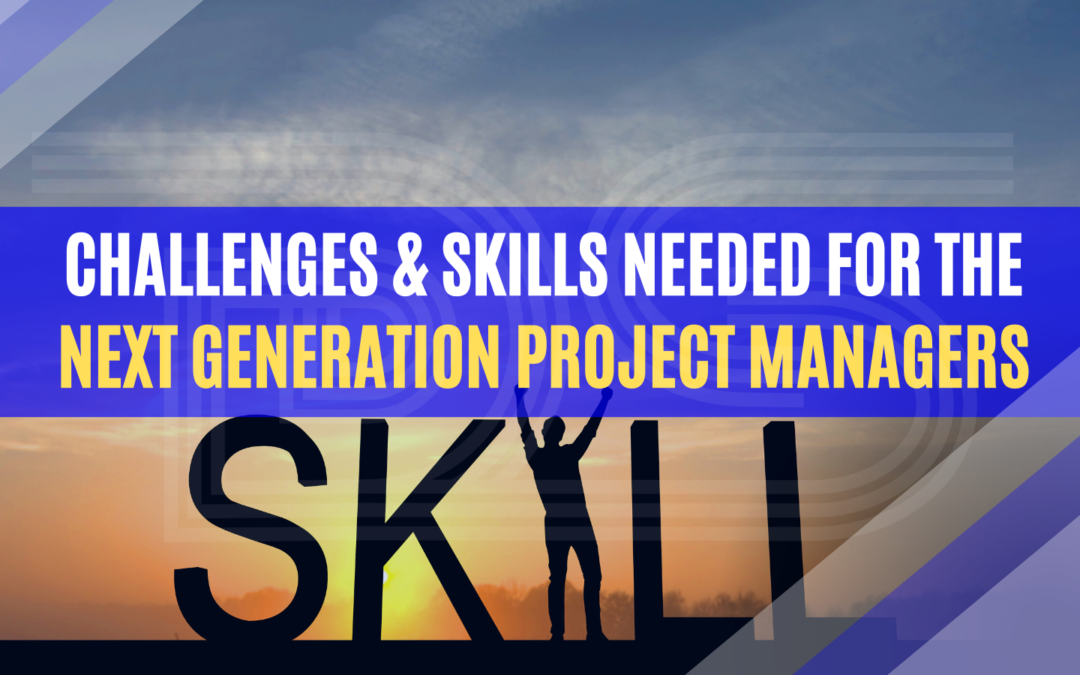
by Dharam CW2 | Aug 25, 2023 | General
The modern workplace is undergoing a significant transformation. As a result, project professionals in both the public and private sectors worldwide have started to recognize the full range of benefits that successful project management can bring to their businesses and are prepared to make the required adjustments, particularly on cultural changes.
The success of each project is dependent on an effective project management strategy. Considering the next generation of project professionals, it is critical to have an efficient leader who can direct this process since it is methodically planning, organizing, and executing a pre-determined series of procedures to maximize resource utilization and achieve objectives. Project goals will likely be met with a manager monitoring adequate planning and checking off milestones.
To compete in the upcoming competitive market, a project manager must have the technical, digital, and other essential project management skills to comprehend future project challenges. On the other hand, a project leader with an effective skill set can tackle all the challenges in a project in the right way. So here are some of the challenges and skill sets to manage a project for the next generation of project managers.
Challenges of Project Management
According to data provided in the PMI’s Pulse of the Profession 2020, 11.4 percent of corporate investment is lost owing to poor project performance.
What variables might contribute to poor project performance? There are examples of a need for more precise planning, inconsistent procedures and techniques, incorrectly managing or accounting for all project stakeholders, budget overruns, and other causes.

Categories of Project Failure
However, if we take a step further, the causes of project failure fall into three major categories:
- People
- Processes
- Communication
Let’s look at the most common challenges for project managers and some tips on how to overcome them.

Challenges of Project Management
- Undefined Goals
Identifying project goals is one of the most common challenges in project management. The entire project and team might suffer when objectives need to be clearly defined. When top management cannot agree on or support undefined goals, the project has a limited likelihood of success. To define and convey clear goals, the project manager must ask the right questions and make the right decisions.
- Scope Creep
“Scope creep” occurs when incorrect project management permits the scope of a project to expand beyond its initial objectives. Clients and supervisors may request modifications to a project, requiring the project manager to examine each request and determine how and whether to accept it meanwhile also conveying the implications to all stakeholders regarding budget and timelines.
- Inadequate Skills for the Project
A project may necessitate the use of talents that the project’s contributors may need to have. Project management may assist a project manager in determining the required competencies, assessing existing personnel, and recommending training, outsourcing, or recruiting extra people.
- Lack of Accountability
When each team member accepts responsibility for their role in project success, the project manager’s leadership characteristics may come through. A lack of responsibility, on the other hand, might bring a project to an end. Learning to lead groups toward a shared objective is an essential part of project management.
- Improper Risk Management
Another key aspect of project management is learning to cope with and plan for risk. Because projects rarely go as planned, risk management is a desired project manager trait. To do their work effectively, project managers must solicit input, build trust, and understand which aspects of a project are most likely to deviate from the original plan.
- Ambiguous Contingency Plans
Project managers must understand which path to pursue in pre-defined “what-if” situations. The entire project may become entangled in unexpected problems if contingencies are not recognized. On the other hand, requesting that people identify possible problem areas can result in a smooth and successful project.
- Poor Communication
Poor communication can cause major project management issues. Project managers must offer direction at all project stages so that each team member understands what is expected from them. Therefore, effective communication with all people involved in the project is critical to its success.
- Resource Deprivation
Management must offer adequate resources for a project to function smoothly and successfully. The project management process aids project managers in establishing demands and securing approval up front, as well as how to assign and prioritize resources during a project.
- Lack of Stakeholder Engagement
A project can be ruined by an uninterested team member, customer, CEO, or vendor. A skilled project manager communicates openly and invites input at every stage to increase participant participation.
- Digital Transformation
Adapting to the correct tools, systems, and procedures becomes even more crucial as more firms board the digital transformation train. This difficulty stems from adapting to the appropriate project management system, enabling teams to construct, change, and improve existing procedures to expand and scale.
Overall, project management is in great demand and isn’t going away anytime soon. Indeed, project management is anticipated to expand by 33% by 2027. However, to keep up with the ever-changing business landscape, project managers must be updated on proper project management methods and trends.
Major Challenges for the Next Generation Project Managers

Major Challenges for the Next Generation Project Managers
- The first major challenge project managers must confront is technology globalization and the disruption of traditional corporate culture and model. This aspect includes eliminating the requirement to do business or manage projects from a single place. The adaptation of the “virtual team” has become a must, and a company’s agility might mean the difference between success and failure. What used to take months may now be accomplished instantly, emphasizing the necessity of a company’s ability to fast and naturally adapt to the fluctuating nature of today’s technology culture.
- The second major concern is worker involvement, a project manager’s capacity to grasp various roles and responsibilities and use agility to wear numerous “hats” depending on the project. Knowing generational drives, establishing moral leadership, and understanding how the team performs are all part of this.
- Finally, project managers will be impacted by innovation and risk. The problem is figuring out how to strike a balance between innovation and risk—as managing risk is an important project management skill—but without it, it’s hard to realize the entire project’s potential.
Future Trends of Project Management
Consider project management ten years ago: fewer tools, smaller teams, and more straightforward tasks. Since then, the project landscape has changed dramatically, with important developments such as:
- Blockchain
- Artificial intelligence
- Sustainability
- Remote teams

Future Trends of Project Management
Trend 1 – Blockchain
More businesses use blockchain technologies for management, such as when conducting dispute investigations. The capacity of blockchain to automatically update data makes it ideal for reconciling records and transactions. One of the most significant contributions of blockchain to project management will be smart contracts, which are effectively self-executing contracts powered by computer code.
Smart contracts reduce the number of key functions within the project manager’s scope, such as checking on project milestones and assigning new ones, which speeds up management processes. As a result, quicker workflow assures project completion on time and improves a company’s overall performance.
Trend 2 – Artificial Intelligence
Artificial intelligence is increasingly finding its way into project management systems, managing anything from predictive analysis to risk management. Because of its efficacy, as per the PwC report, by 2030, AI is expected to contribute:
- $42.7 B (7.7%) to Egypt’s economy
- $135.2 B (12.4%) to Saudi Arabia’s economy
- $96.3 B (13.6%) to the UAE economy
The primary capacity of AI is to provide data insights for decision-making, which increases the agility of any given project.
Trend 3 – Sustainability
Project sustainability is more critical than ever now. Governments and societies worldwide are demanding greener alternatives throughout the life cycle of a project.
Green initiatives are cost-cutting solutions for businesses. For example, energy is required for project completion, and shifting to renewable sources reduces costs. In addition, this frees up resources that may be directed toward other essential areas like innovation and research. Meanwhile, sustainable practices improve a company’s reputation and encourage consumer loyalty.
Trend 4 – Remote Teams
Remote teams have been the norm since the advent of communication technology. As a result, businesses gain from a more diverse and borderless talent pool easily available through contracts. In addition, they spend less on office space, travel, and other administrative expenses.
Data from Upwork’s Future Workforce Report 2021 revealed that more than half of the US population was working remotely to some level. Furthermore, 40.7 million Americans will likely be fully remote during the next five years.
Furthermore, in its 2022 State of Remote Work Report, Buffer discovered that 97% would promote remote work to others and continue to work remotely, at least for some time or for the rest of their lives. On the other hand, just 26% of businesses are prepared to offer a remote work environment.
As a result, it’s not unexpected that more workers anticipate that workplaces will become entirely virtual over the next several years. In general, remote working arrangements enable businesses to extend their resources while increasing operational efficiency. As such, they are crucial in developing lean, competitive firms.
Key Skills needed for Next-Generation Project Managers
Because of rising trends such as remote teams, digitalization, and automation, project management has changed dramatically in recent years. More companies rely significantly on technology to plan, execute, and monitor work.
As an example:
- Big data and artificial intelligence for better risk forecasting
- Remote progress tracking using digitization technologies
- Automation software for more efficient execution
These solutions have improved firms’ management capabilities and altered project management’s future.
According to Gartner research, 80% of management duties will be automated by 2030, and future managers will need more technical skills. They must be knowledgeable about cybersecurity, blockchains, machine learning, and robots, all of which are expected to play larger roles in management.
To stay up with trends in modern project management, a fundamental understanding of topics such as data science, conflict resolution, and entrepreneurship is required. For example, data science skills may assist a manager in incorporating AI into more elements of the project life cycle. Here’s a closer look at what these skills include and how they’ll stay up with future innovations in project management.

Key Skills Needed For Next Generation Project Managers
Skill 1 – Data Science
Big data insights are essential management tools in the future, especially for large projects with extensive life cycles. In terms of planning, insights from previous projects indicate inefficiencies that can guide the current project, such as the number of idle hours and their causes. In terms of execution, data analytics assess progress and spot deviations early, such as changes in material prices and exchange rates that exceed estimates.
Skill 2 – Conflict Resolution
Today’s projects are extremely complicated, with constantly changing deliverables. As a result, conflicts are never far away.
These conflicts, if left unaddressed, can undermine your team’s performance, resulting in delays and missed deliverables. Managers must thus understand the aspects of conflict resolution, such as:
- Behavioral and organizational aspects of a positive workplace
- Effective communication
- Effective contingency planning
Skill 3 – Entrepreneurship
Project managers are essentially CEOs. On the one hand, they are in charge of project deliverables, while on the other, they are negotiating with shareholders and setting targets based on estimates. As a result, being productive requires more than technical and administrative skills. Project managers must also have entrepreneurship skills, such as strategic thinking and market insight. This skill is beneficial for modifying deliverables, which is typical in agile projects like software development.
Skill 4 – Resource Management
Budgets and timeframes became tighter as projects got more significant and more complicated. Today’s project managers must balance budget constraints, deliver quality, and achieve deadlines with limited resources. They are entrusted with creating a lean organization.
For optimal efficacy, a delicate balance of resource allocation is required, as over-allocation to one activity inhibits the others. So, managers must understand resource management principles such as equilibrium shifts and flexibility.
Skill 5 – Digital Skill
Digital skills are essential for future project managers. According to the CBI’s report on developing a world-leading innovation economy, upskilling employees with digital skills is critical. However, the digital skills pipeline could be improved. They believe more should be done to foster more ambition in that field.

Digital Skills For Project Managers
Project managers need to have the following digital skills:
- Data analysis, analytics, and management
- Data security and protection
- Compliance with the rules and regulations
- Leadership and collaboration online
- Management of knowledge
- Decision-making based on data.
Considering the vital significance of the project manager’s role and how it changes, here is a list of additional skills for project leaders to follow in the present and future to enhance their careers and succeed.

Skills For Future Project Leaders
- Emotional Intelligence: The capacity to detect and interpret events and interactions (both verbal and nonverbal) in the context of the project plan.
- Adaptive Communication:The ability to explain one’s views to various individuals, groups, and cultures, whether orally or in writing, utilizing the most successful communication approaches for each group.
- People Skills: The ability to rapidly establish and maintain strong connections with team members and stakeholders.
- Management skills: The capacity to serve, encourage and concentrate a team, and create team member collaboration.
- Flexibility:The willingness and capacity to modify one’s project management style and course of action in response to business needs.
- Business Skills:Understanding the organization’s business, strategy, and industry. Understanding of a plan and ability to coordinate tactical work around that strategy.
- Analytical abilities:The capacity to think through circumstances and make judgments.
- Customer Focus:The ability to comprehend the end user’s or end customer’s demands and the drive to guarantee that projects meet those needs.
- Results-Orientation:The capacity to do tasks efficiently and successfully.
- Character:The project manager should have a pleasant demeanor and a solid moral and ethical foundation.
Final Thoughts
With a focus on the future generation, we’ve entered a project management world where we need to be aware of the key challenges we’ll encounter as project managers and the skills we’ll need to improve to succeed: technology globalization, worker engagement, and the battle between innovation and risk. There are, however, a few crucial insights to remember as you continue your journey through the strange and ever-changing world of project management.
- Be agile or be gone:Business constantly needs greater flexibility, strategy, and adaptability than ever before. No one strategy will work every time; knowing how to adjust to change with agility and rapidity is essential.
- Expect all teams to act differently:Teams will always be more diverse than those who make them up. However, you can lead more successfully if you genuinely grasp your team and each member’s unique imperatives. Because project teams determine project success, one of the most crucial skills of a competent project manager is the ability to construct an effective, high-performing team.
- Help team members understand the big picture:This will assist them in preparing for obstacles. When attempting to resolve an issue or manage change, keep the immediate consequences in mind to prevent losing sight of the forest for the trees.
Feel free to check out my discussion on this topic with Thomas Walenta in YouTube
For any questions related to your Project Management career, training, and certifications, you can book an obligation free 15 minutes session with me by visiting https://bit.ly/2SbhTOK
You can subscribe to the vCare Project Management YouTube Channel to catch future videos of our Q&A series and certification success stories: https://bit.ly/2YF0wJl
You can subscribe to and follow my podcasts and interviews with Project Management Experts on YouTube at https://bit.ly/2NDY8wd
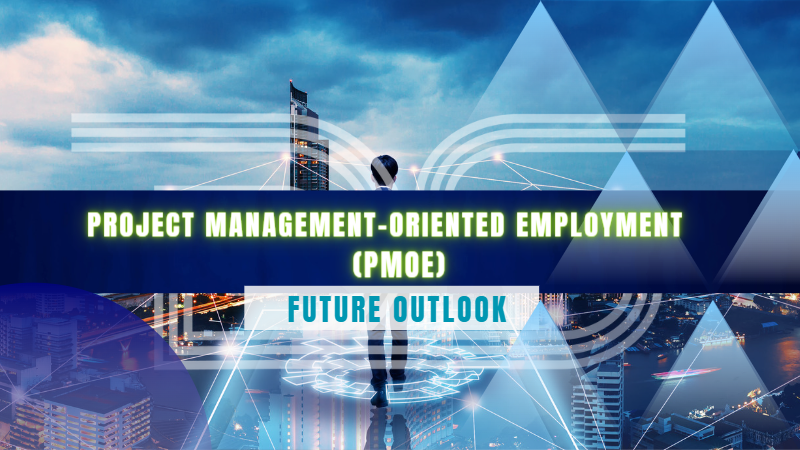
by Dharam CW2 | Jul 19, 2023 | General
Project management is a fulfilling career choice that may offer competitive pay and a wide range of job opportunities. As a result, project managers are constantly in demand: Qualified individuals are always needed to plan and provide work in every business.
Over the next ten years, demand for project managers is one of the roles which will expand faster than the need for workers in other roles. But on the other hand, organizations may face risks due to the talent gap.
Understanding PMOE
Projects are becoming an increasingly important component of business completion. The acceleration of business evolution, increasing emphasis on digital transformation, and ever-changing consumer expectations and competitor offers are here to stay. As a result, project management skills and talents are becoming increasingly important in organizations.
Organizations will not invest in training the people in those positions to accomplish that work if those roles are not recognized as contributing to project management. As a result, they will not foster an environment where employees may develop experience, and they will eventually find themselves unable to sustain the number of projects that must be delivered.
One of the reasons that technical roles are considered part of PMOE is the growing adoption of agile ways to deliver work. However, many organizations still see agile as a ‘project management free’ delivery method, where the self-organized nature of agile teams eliminates the need for project management. But, again, this thinking must change if there is any hope of closing the skills gap.
Organizations must assess their skill profiles for all roles and determine if project management competencies should be included. Even roles that do not entail daily project delivery or where employees are more frequent contributors than leaders are likely to benefit from project management skills and experience. Unless that is ‘built in’ to job profiles, hiring and development methods will remain the same, and the shortage will remain unaddressed.
Talent Gap Report 2021
Successful projects are a significant contributor to global economic growth. As more industries become projectized, the demand for qualified project managers will likely rise over the next decade.

The Talent Gap Report 2021
The Talent Gap Report 2021 has been released by the Project Management Institute. The headline is the scarcity of qualified candidates for project management-oriented employment (PMOE). As a result, around 25 million more employees will be required by 2030 than in 2019. To put this in context, there were 90 million workers in those positions in 2019, implying a 30% increase.
Simultaneously, 13 million existing project management-oriented employees will retire, with the vast majority nearing the top of the experience curve. This phenomenon implies that enterprises will lose significant knowledge and skill. And this will happen when they increase the need for that experience by introducing a large number of new project-related staff who must progress quickly. In developed economies, on the other hand, retirement is the primary source of job possibilities for younger workers.
The report’s most critical statement comes near the end: “Global demand for project management expertise is unlikely to be addressed by 2030 unless firms encourage a culture of continuous learning.” As a result, firms confront a huge growth in PMOE roles and an inability to address that requirement based on current business processes.
Addressing challenges of this magnitude demands a strategic approach backed by financial commitments and constant responsibility for performance. In some circumstances, it may also necessitate a transformation in how leaders understand their companies and roles.

3 Reasons For The Project management Talent Gap
Why and where is the Talent Gap?
There are three reasons for the project management talent gap:
- The number of positions requiring project management skills is increasing.
- Project managers are in high demand in emerging and developing companies.
- Project managers are retiring faster than young talent can replace them.
Upskill the people
Unless firms foster a culture of continuous learning, the worldwide need for project management skills is unlikely to be met by 2030. The most resilient firms will prioritize reimagined employee capability-building.
According to a McKinsey report, over 80% of business leaders consider skill building to be “very” or “very” vital to their organization’s growth, up from 59% before the pandemic. As a result, organizations will need to support new learning initiatives and seek partnerships to equip employees with the appropriate project management skills to develop their talent. These talents include power skills like teamwork and leadership; business acumen to develop well-rounded employees; and mastering new methods of working, such as growing use of tech-enhanced problem-solving tools.
Gaining a Competitive Advantage in the Talent Acquisition Race: The Front-Runners
According to PMI and PwC study, a cohort of 250 organizations face fewer challenges in attracting and retaining talent than their counterparts. Their project management offices (PMOs) are better connected with corporate strategy—three quarters have a C-suite presence, and 90% are seen as strategic partners by their executive leaders. As a result, they have an easier time recruiting people with important project skills. They are more successful at developing project managers. They are also twice as likely to have outperformed in revenue growth, customer acquisition, customer happiness, and environmental, sustainability, and governance (ESG) indicators.
Facilitating project-based organizations
The concept of stable operations is unlikely to exist at any scale by 2030, which is one of the most important factors driving the demand for more individuals in PMOE roles. The rapid growth of technology has resulted in much shorter lifecycles for both customer-facing and internal solutions. This trend is expected to continue as digital transformations drive organizations to the point where technology is vital in managing every business area.
Future of project management
Project management is being massively disrupted by management technology. As a result, forward-thinking professionals are questioning how to effectively prepare for the upcoming tidal wave of change caused by technological innovation.
Here are four skills that project managers of the future might need:
- Data Science
- Conflict resolution
- Entrepreneurship
- Resource management
Project Management’s Future in the Age of Advanced Technology
Because of emerging trends such as remote teams, digitalization, and automation, project management has changed dramatically in recent years. As a result, companies now rely significantly on technology to plan, execute, and monitor work. As an example:
- Big data and artificial intelligence for better risk forecasting
- Remote progress tracking using digitization technologies
- Automation software for more efficient execution
These innovations have improved firms’ management capacities and altered project management’s future. According to Gartner research, 80% of management duties will be automated by 2030, and future managers will need more technological abilities. They must be knowledgeable about cybersecurity, blockchains, machine learning, and robots, all of which are expected to play larger roles in management.
Future Trends of Project Management
Consider project management ten years ago: fewer tools, smaller teams, and more straightforward tasks. Since then, the project landscape has changed dramatically, with major trends such as:
- Blockchain
- Artificial intelligence
- Sustainability
- Remote teams

Future Trends of Project Management
Trend 1 – Blockchain
More companies use blockchain technologies for management, such as when conducting dispute investigations. The capacity of blockchain to automatically update data makes it ideal for reconciling records and transactions. One of the most significant contributions of blockchain to project management will be smart contracts, which are effectively self-executing contracts powered by computer code.
Smart contracts reduce the number of key functions within the project manager’s scope, such as checking on project milestones and assigning new ones, which speeds up management processes. As a result, quicker workflow assures project completion on time and improves a company’s overall performance.
Trend 2 – Artificial Intelligence
Artificial intelligence quickly infiltrates project management systems, handling anything from predictive analysis to risk management. Because of its efficacy, AI is expected to contribute:
- $42.7 B (7.7%) to Egypt’s economy
- $135.2 B (12.4%) to Saudi Arabia’s economy
- $96.3 B (13.6%) to the UAE economy
The primary capacity of AI is to provide data insights for decision-making, which increases the agility of any given project. For example, assume a manager considers which product features to include; AI finds correlations and patterns in consumer data and then recommends which product features are more likely to sell. Such insights improve an organization’s competitiveness by avoiding commitment to poorly planned, hazardous ventures.
Trend 3 – Sustainability
Today, project sustainability is more crucial than ever. Governments and societies all around the world are demanding greener approaches throughout the life cycle of a project.
Green initiatives are cost-cutting methods from a business standpoint. For example, energy is required for project execution, and shifting to renewable sources reduces costs. In addition, this frees up resources for other essential areas, such as innovation and research. Meanwhile, sustainable practices improve a company’s brand and foster consumer loyalty.
Trend 4 – Remote Teams
Remote teams have been the norm since the advent of communication technology. As a result, businesses gain from a more diverse and borderless talent pool easily available through contracts. In addition, they spend less on office space, travel, and other administrative expenses.
As a result, it’s not unexpected that 65% of workers anticipate that workplaces will become entirely virtual over the next several years. In general, remote working arrangements enable businesses to extend their resources while increasing operational efficiency. As such, they are crucial in developing lean, competitive firms.
Skills Future Project Professionals Need
To stay up with modern project management trends, a fundamental understanding of ideas such as data science, conflict resolution, and entrepreneurship is required. For example, understanding data science may assist a manager in incorporating AI into more elements of the project life cycle.
Here’s a closer look at what these talents comprise and how they’ll stay up with future project management improvements.

4 Skills Future Project Professionals Need
Skill 1 – Data Science
Big data insights are essential management tools, particularly for large projects with extensive life cycles. Insights from previous projects show inefficiencies that guide the current project, such as the number of slack hours and their causes. Data analysis assesses progress and uncovers deviations early, such as changes in material costs and currency rates that exceed expectations. As a result, project managers must comprehend topics such as statistical inference and regression analysis.
Skill 2 – Conflict Resolution
Today’s projects are extremely complicated, with constantly changing deliverables. As a result, conflicts are never far away. These issues, if left unaddressed, can undermine the team’s performance, resulting in delays and missed deliverables. Managers must thus grasp the various aspects of conflict resolution, such as:
- A conducive work environment’s behavioral and organizational components
- Effective communication
- Effective contingency planning
Skill 3 – Entrepreneurship
Project managers are, in essence, CEOs. On the one hand, they manage project deliverables. Yet, simultaneously, they negotiate with shareholders and set goals based on estimates. As a result, being effective requires more than technical and administrative skills.
Entrepreneurial skills, such as strategic thinking and market insight, are also required of project leaders. Such skills are especially important when modifying deliverables, typical in agile projects like software development.
Skill 4 – Resource Management
Budgets and timeframes became tighter as projects became larger and more complicated. Today’s project managers must balance budgetary constraints, quality delivery, and achieving deadlines with limited resources. They are entrusted with creating a lean organization.
For optimal efficacy, a precise balance of resource allocation is required, as over-allocation to one activity inhibits the others. As a result, managers must understand resource management principles such as equilibrium shifts and flexibility.
Bridging the talent gap
The PMI Talent Gap report delves into a decade’s worth of project management-related job trends, costs, and global implications. PMI has completed its most recent study of the “projectized” businesses that leverage these talents better to understand talent and employment trends in project management. Using data from selected areas, the PMI Talent Gap report provides a birds-eye perspective of the most in-demand talents and the magnitude of the talent shortfall.
PMI data shows a continuing gap between the global demand for project management skills and talent availability. This data translates into many new career prospects in PMOE for job-seeking project professionals. However, the skill shortage is a significant issue for firms that rely on project leaders and changemakers. For example, by 2030, this skill gap is anticipated to affect every area, resulting in a potential global GDP loss of up to US$345.5 billion.
Here is a summary of the top three reasons for the skill gap, as identified by PMI research and explained in the report:
- An increase in the number of professions that need project management expertise.
- Economic growth drives demand for project managers in emerging and developing countries.
- The rate of labor-force retirement
Final Thoughts
Project management has a bright future. There is still a high demand for change agents. PM will transition from being viewed as an administrative function by some executives to the strategic partnership that it has the potential to be in every organization, not just those enlightened businesses with high levels of program management maturity.
For many years, the skills of project managers have migrated toward “soft” skills. However, given how the future of work is shaping, this will become much more important. Project managers will need to be team players. As a result, we’ll need to interact with people who have the skills that the technical companion lacks:

Skills That The Technical Companion Lacks
- Empathy
- Strategic thinking
- Fun
- Creativity
- Motivation and persuasion
- Thoughtful customer service
- Listening
Feel free to check out my discussion on this topic with Justin Buckwalter in YouTube
For any questions related to your Project Management career, training, and certifications, you can book an obligation free 15 minutes session with me by visiting talktodharam.com
You can subscribe to the vCare Project Management YouTube Channel to catch future videos of our Q&A series and certification success stories: https://bit.ly/2YF0wJl
You can subscribe to and follow my podcasts and interviews with Project Management Experts on YouTube at https://bit.ly/2NDY8wd
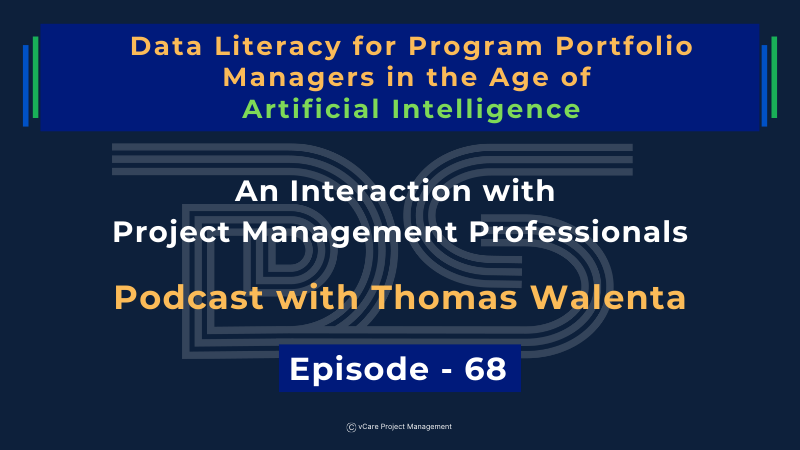


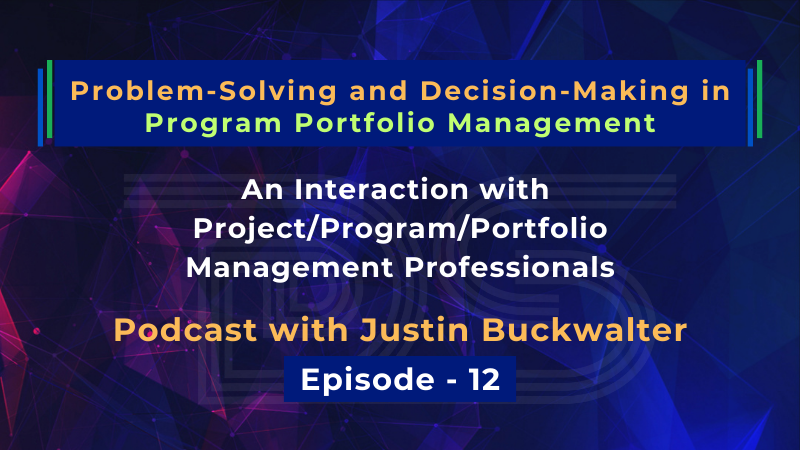

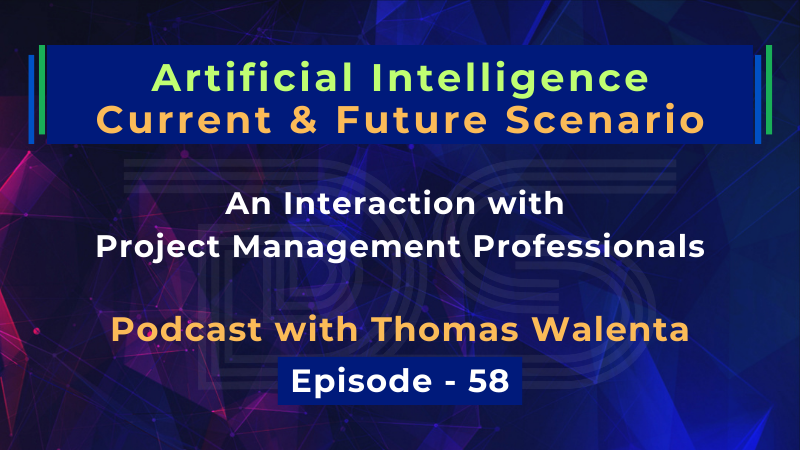

















Recent Comments